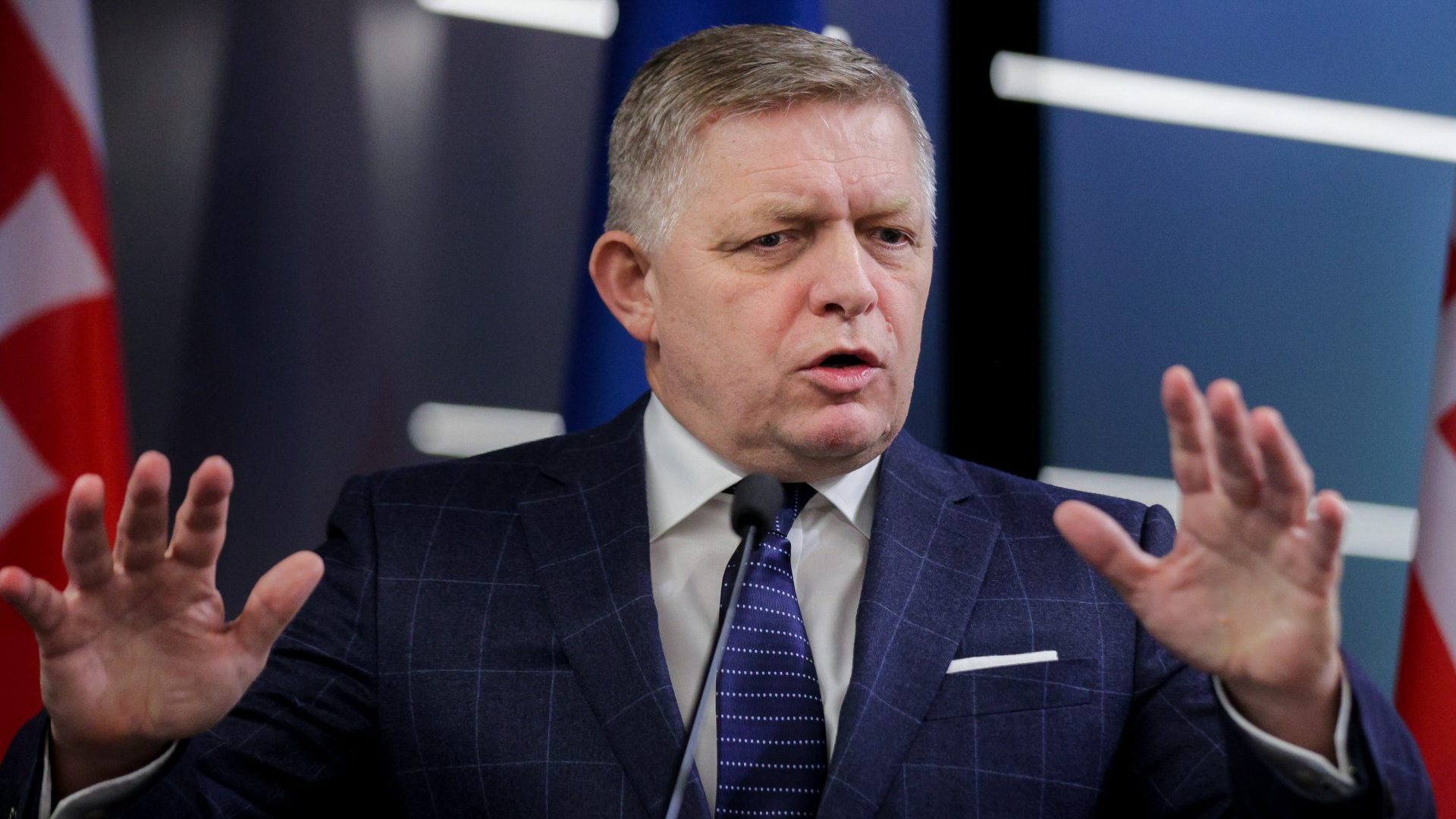In the days leading up to the US presidential election, Robert Fico, the Slovakian prime minister, appeared on Russia’s state-owned Rossiya-1 channel. With a blend of charm and wit aimed at Russian TV viewers, he quipped, “If someone thinks Russia is on their knees, it may be only because they are tying their shoes.”
Fico blamed the west for the continuation of the war in Ukraine and he renewed his call to halt military aid to Ukraine. Fico was also the first EU leader to be interviewed by Russian TV since the start of the Russian invasion. Later, the Russian government-backed RT channel highlighted Fico’s criticism of the Biden’s administration for lifting restrictions on Ukraine’s use of US longer-range missiles. “NATO state blasts ‘senseless’ Biden missile U-turn,” screamed the headline on RT.com, the Kremlin’s propaganda outlet.
This rhetoric places Fico in alignment with US president-elect Donald Trump, and hints fairly strongly that Fico plans to present himself as a European ally for Trump. Fico’s views align with Trump’s on a number of contentious issues, and that will make it trickier to develop a unified European stance when it comes to defense, the war in Ukraine, and relations with Russia.
“Just look at the first reaction of the Russian president to the US election results: let’s renew relations,” Fico proclaimed shortly after Trump’s re-election. “The Russian president made it clear, we need a new world order.”
In a recent phone call, Fico and Trump discussed the ongoing conflict in Ukraine, during which Fico expressed his belief that “there are enormous expectations not only in Slovakia but also throughout Europe regarding the war in Ukraine.” He also wrote on social media, “I very openly reiterated to him all the positions that I publicly present.”
Ukraine will not be the only topic where Trump and Fico see eye to eye. The Slovakian prime minister swiftly congratulated the appointment of the vaccine sceptic Robert F. Kennedy Jr. as health secretary. Fico and his government of antivaxxers and COVID-19 deniers had previously earned accolades from Kennedy, who has faced accusations of spreading health-related misinformation. Kennedy also praised Fico’s administration for disregarding the WHO’s anti-pandemic recommendations earlier this year.
A more delicate issue is Fico’s pursuit of warmer relations with China. By coincidence, as Americans were electing their new president, Fico was on the final day of his visit to China, which included a meeting with president Xi Jinping. Trump himself has had a mixed approach to Xi, calling him a “brilliant guy” while simultaneously threatening widespread tariffs on Chinese goods. But Fico is against punishing China.
Ultimately, Ukraine might be the one key area where Fico and Trump find common ground. Both leaders are vocal about calling for a swift peace and are equally stubborn about withholding military aid to Ukraine, at least based on their public statements.
In March, the Slovak foreign minister Juraj Blanár met Sergey Lavrov, his Russian counterpart, during a diplomatic forum in Turkey. The Slovakian government proudly touts this as “sovereign foreign policy”.
“Robert Fico decided to trip up traditional allies in the West and cozy up to Russia,” said Tomáš Valášek, the former Slovak ambassador to Nato and now MP for the main opposition party Progresívne Slovensko. “He chose pro-Putin Hungary as his main ally in the EU. He rejected military aid to Ukraine and even mocked the contributions of Slovak citizens to the Czech initiative for ammunition to Ukraine.”
“Fico has always been a master of this ridiculous political theater,” says Branislav Gröhling, leader of the smaller opposition party, Sloboda a Solidarita (Freedom and Solidarity). “Before the elections, he assured voters that not a single bullet would be sent to Ukraine. Fast forward, and his government is backing arms manufacturers who have exported over €100 million worth of weapons and ammunition to Ukraine in just a year.”
“Fico once branded our defense agreement with the US as treasonous,” continued Gröling, “yet now his government enthusiastically welcomes American fighter jets. And who are these jets supposed to protect us from? Fico knows they are meant to shield us from Russia, but he continues his charade for the voters.”
In Gröling’s view, Fico cannot confront that truth. If he did, he would lose his fabricated enemies – Brussels and the west – which help him to divert attention from the real issue: his own government’s failures.
However, an alliance between Trump and Fico against European unity, especially on Ukraine, could run into trouble. Jozef Lenč, the political scientist, points out that, “With Trump, unpredictability is the only certainty.”
“If Trump, alongside Viktor Orbán and other far-right leaders working to dismantle the EU, takes notice of Robert Fico, it could benefit Fico politically. However, he will be just one of many trying to curry favor with Trump through their anti-EU policies,” Lenč says.
Two significant moments unite Donald Trump and Robert Fico. Both have survived failed assassination attempts, which Fico once described as “carbon copies.” Fico even mentioned this in his phone call with Trump. “I made a personal remark that we faced similar challenges, including attempts to imprison us and physically eliminate us, which fortunately our opponents were not able to accomplish,” Fico wrote on his social media.
Both leaders are also known for labeling their enemies. Fico hailed Trump’s re-election as a “defeat for liberal and progressive ideas,” a sentiment that has become a hallmark of his rhetoric.
Fico will continue to be a disruptive force in Europe. However, both he and Trump are unpredictable, making their next moves hard to foresee. This unpredictability is yet another example of how they may be different men from very different countries, but they are unsettling alike all the same.









